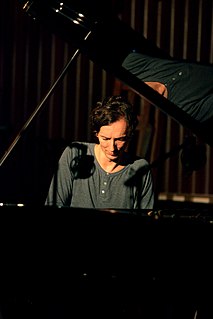A Quote by F. Scott Fitzgerald
And after reading Thoreau I felt how much I have lost by leaving nature out of my life.
Related Quotes
For me as a kid, reading cyberpunk was like seeing the world for the first time. Gibson's Neuromancer wasn't just stylistically stunning; it felt like the template for a future that we were actively building. I remember reading Sterling's Islands in the Net and suddenly understanding the disruptive potential of technology once it got out into the street. Cyberpunk felt urgent. It wasn't the future 15 minutes out - it was the future sideswiping you and leaving you in a full-body cast as it passed by.
At this point in our global ecological crisis, the survival of humanity will require a fundamental shift in our attitude toward nature: from finding out how we can dominate and manipulate nature to how we can learn from her. In this brilliant and hopeful book, Jay Harman shows us how far the new field of Biomimicry has already progressed toward this goal. The Shark's Paintbrush makes for fascinating and joyful reading - much needed in these dark times.
Reading is sometimes thought of as a form of escapism, and it’s a common turn of phrase to speak of getting lost in a book. But a book can also be where one finds oneself; and when a reader is grasped and held by a book, reading does not feel like an escape from life so much as it feels like an urgent, crucial dimension of life itself.
The power of reading a great book is that you start thinking like the author. For those magical moments while you are immersed in the forests of Arden, you are William Shakespeare; while you are shipwrecked on Treasure Island, you are Robert Louis Stevenson; while you are communing with nature at Walden, you are Henry David Thoreau. You start to think like they think, feel like they feel, and use imagination as they would. Their references become your own, and you carry these with you long after you've turned the last page.
Reading a novel after reading semiotic theory was like jogging empty-handed after jogging with hand weights. What exquisite guilt she felt, wickedly enjoying narrative! Madeleine felt safe with a nineteenth century novel. There were going to be people in it. Something was going to happen to them in a place resembling the world. Then too there were lots of weddings in Wharton and Austen. There were all kinds of irresistible gloomy men.






































